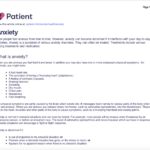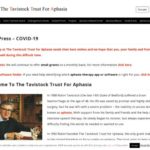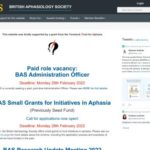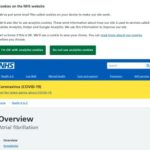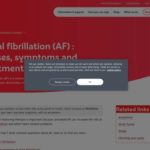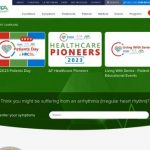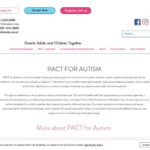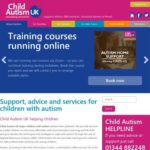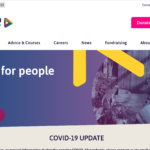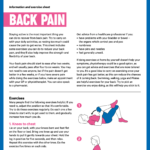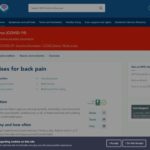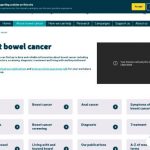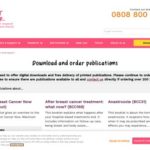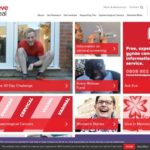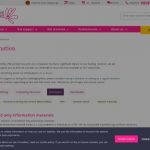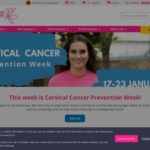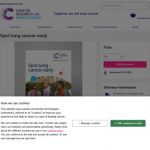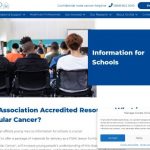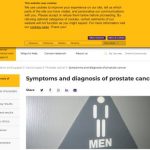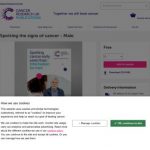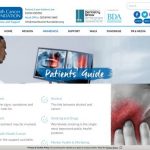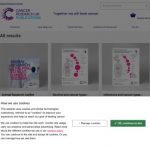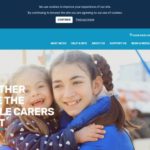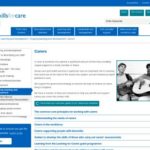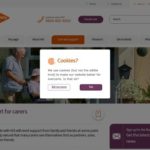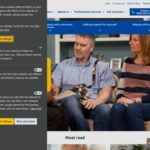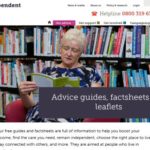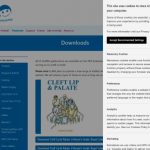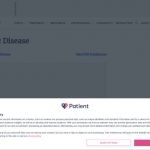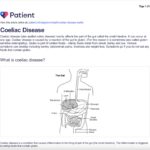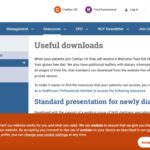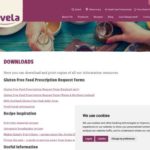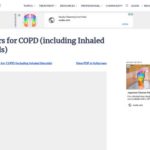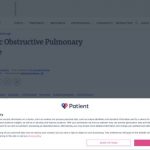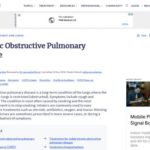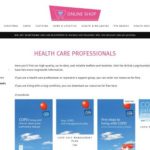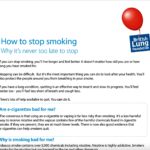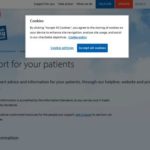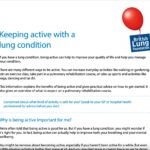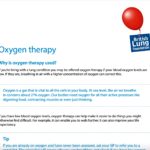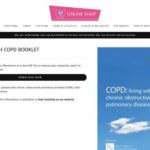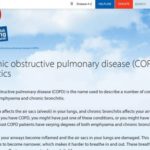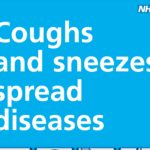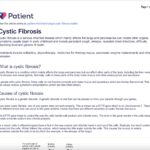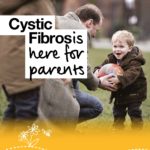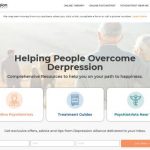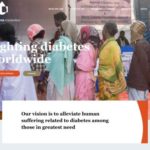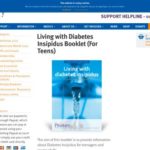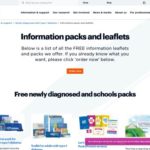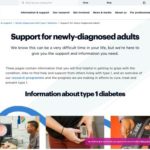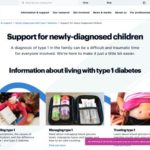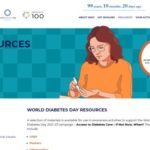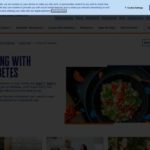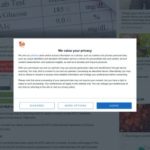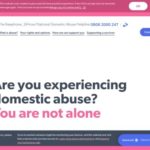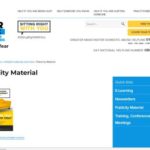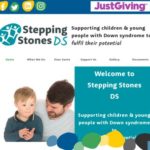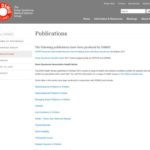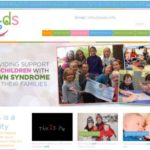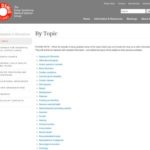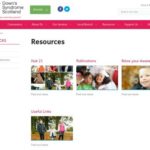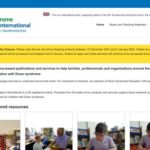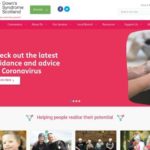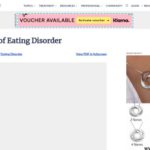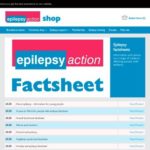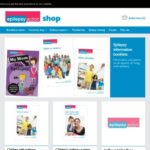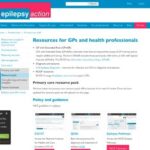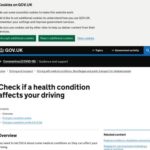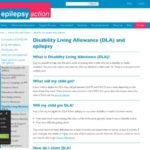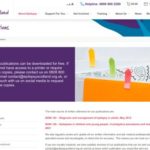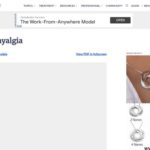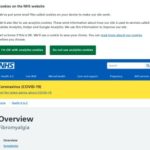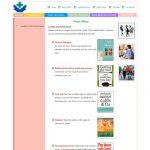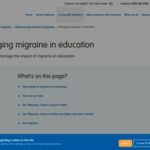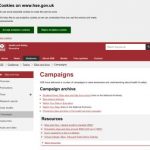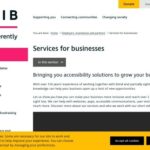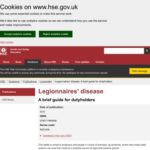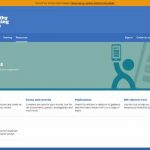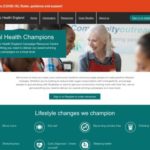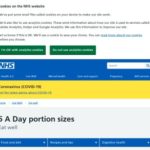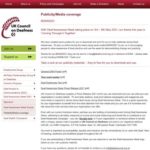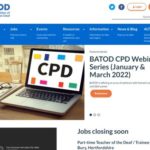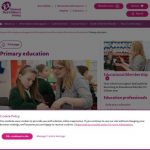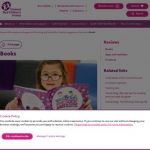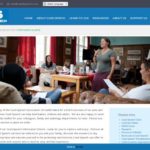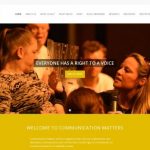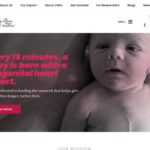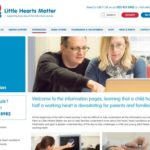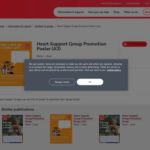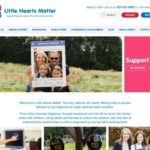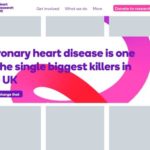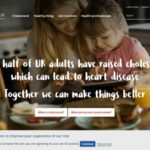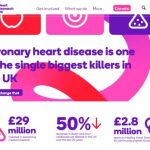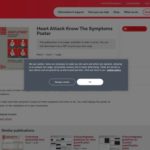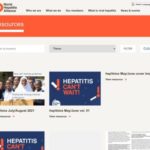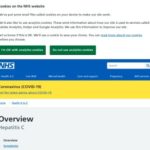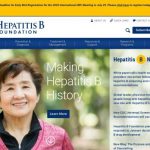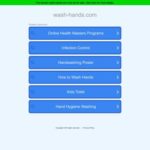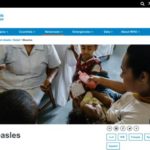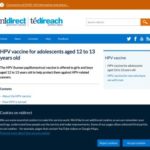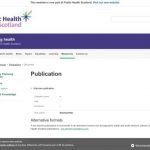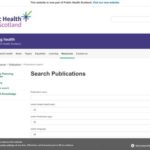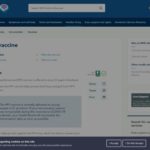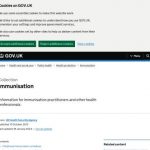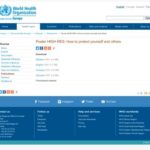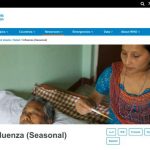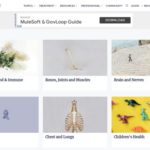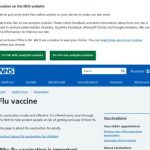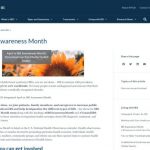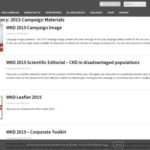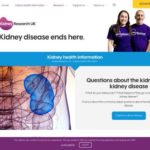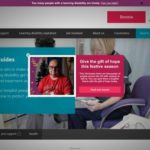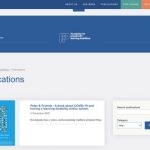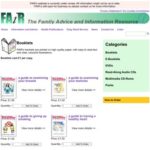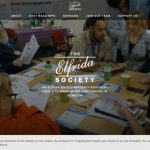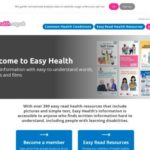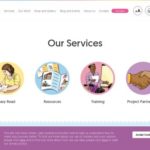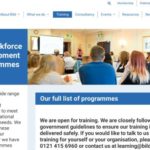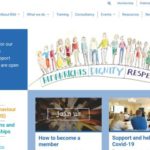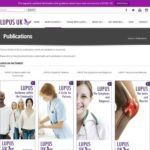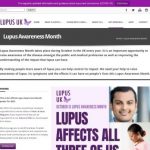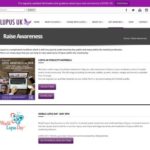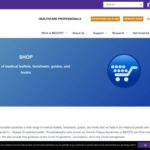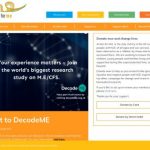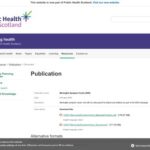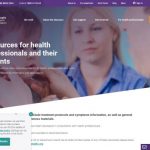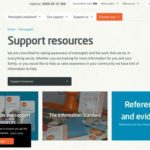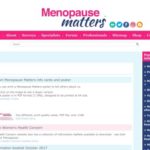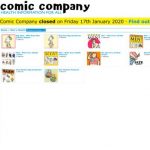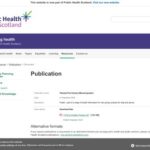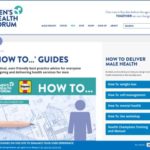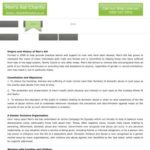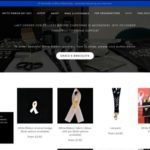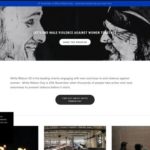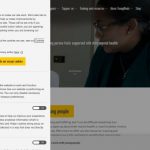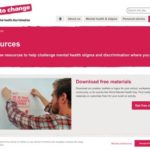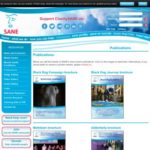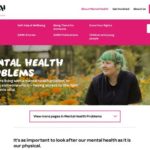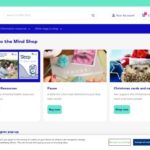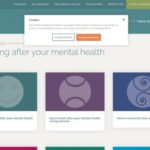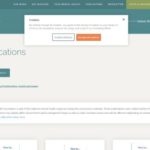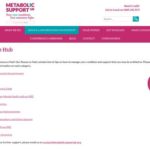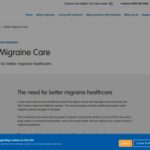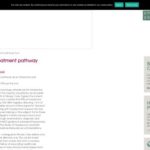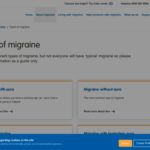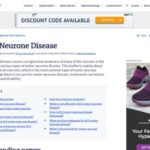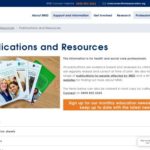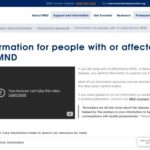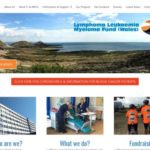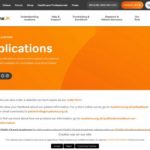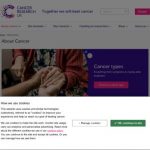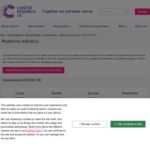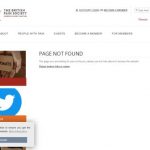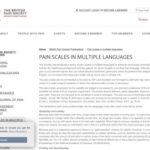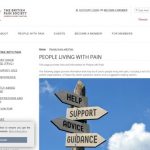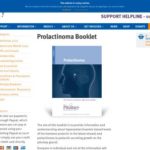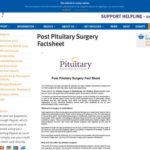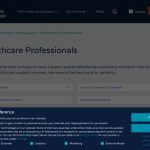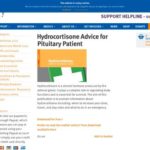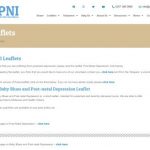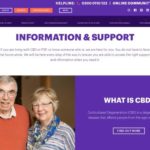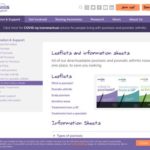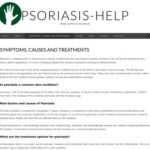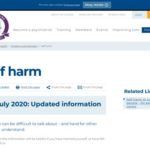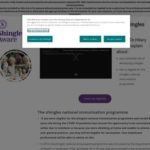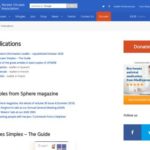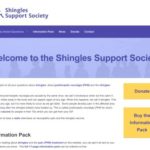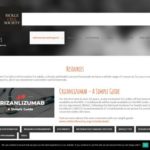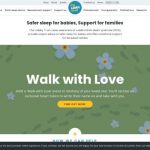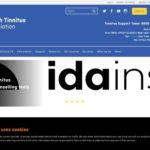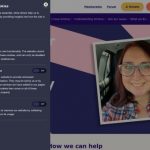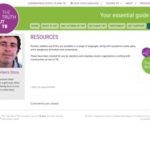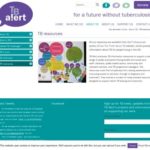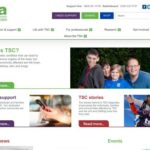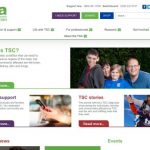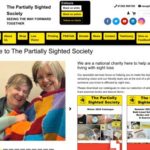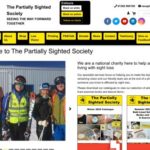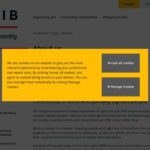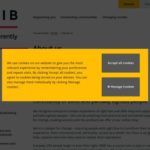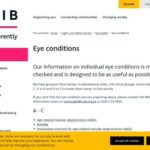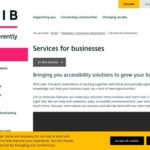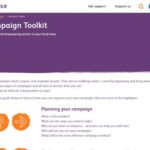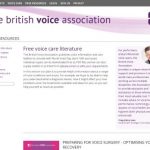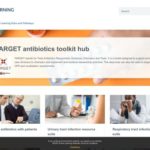Latest publications
Digital Enablement Resources to support access
Latest Links
Submit your useful resources
Do you have resources that you regularly use that others would benefit from?
Health Resources and Support
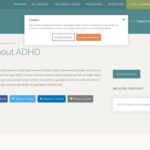
The Mental Health Foundation - All about ADHD
A booklet for parents and carers of a child diagnosed with Attention Deficit Hyperactivity Disorder, or for anyone wondering if their child may have ADHD. It is also useful for relatives, friends, teachers and GPs or health visitors. This booklet will also give you answers to some of the most common questions, Â point you in the direction of more detailed publications and provide details of organisations that can help.
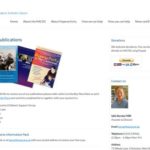
The Hyperactive Children's Support Group
The aim of HACSG is to provide information and advice to Parents, Carers and Professionals seeking solutions for children and young people who may be affected by Hyperactivity and/or ADHD. The HACSG is unable to offer diagnosis or medical advice. They are more than happy to talk over any concerns Parents, Carers or Professionals may have and will do their best to investigate a dietary and nutritional approach.
Our Publications
They have a number of helpful and informative publications available to order from the Publications page.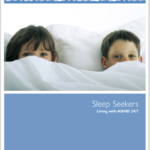
Sleep Seekers - information for parents of children with ADHD about coping with sleep disturbance
Sleep Seekers has been sponsored by an educational grant from Eli Lilly and Company Limited
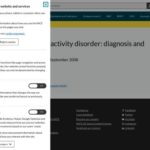
NICE Guidance on ADHD
This guideline covers recognising, diagnosing and managing attention deficit hyperactivity disorder (ADHD) in children, young people and adults. It aims to improve recognition and diagnosis, as well as the quality of care and support for people with ADHD.
This guideline includes new and updated recommendations on:- recognition
- information and support
- managing ADHD
- medication, including monitoring and review
- adherence to treatment
It also includes recommendations on:
Who is it for?- Healthcare professionals
- Commissioners and providers
- People with ADHD, and their families and carers

Advice for parents - Janssen (pharmaceutical company)
Although a pharmaceutical companies website, this actually has a lot of useful resources for parents – such as symptoms, key things to discuss with the doctor and talking to teenagers or young people with ADHD
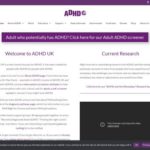
ADHD UK
ADHD UK is a new charity focused on ADHD. It has been created by people with ADHD for people with ADHD. They have videos (by Dr Max Davie – specialist in ADHD, trustee of ADHD UK and person with ADHD), information on teacher attitudes to help inform conversations with your school, and for adults a self-screener survey to uncover if you might have ADHD. If you think you have ADHD and are worried about NHS waiting times please look at the diagnosis pathway page, which has information on your NHS Right to Choose and faster NHS paid options. We hold video based support groups. Bringing people together on areas such as “Recently diagnosed Adult ADHD”, “Finding the right career”, “Parenting” and others. If you are interesting in participating join our mailing list to be notified.

ADHD Institute
An educational platform about ADHD developed and funded by Takeda (pharmaceutical company)
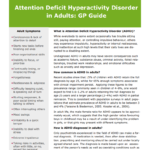
ADHD in adults GP guide
A really useful pdf guide for GPs. Covers symptoms and overview.

ADHD Foundation - information for schools
The ADHD Foundation Neurodiversity Charity is an integrated health and education service offering a unique lifespan – strength based service, for the 1 in 5 people who live with ADHD, Autism, Dyslexia, Dyspraxia, Dyscalculia and Tourette’s syndrome. They work in partnership with agencies across all public services and business sectors, to create a paradigm shift in health, education and employment. Working with Government, their partner agencies and service users, they aim to influence policy and provision for the benefit of all; reduce dependency, empower and enable the neurodiverse population to achieve their potential and improve life opportunities. This section of their website has very useful resources for schools
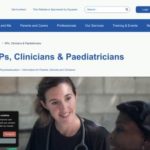
ADHD Foundation - information for GPs, Clinicians & Paediatricians
The ADHD Foundation Neurodiversity Charity is the national ADHD charity for the UK, and the largest user-led ADHD charity in Europe. The Foundation promotes a neurodiverse paradigm in health, education and employment. Working in partnership with individuals, families, doctors, teachers, government and other agencies, the ADHD Foundation actively promotes a strength-based approach to living successfully with ADHD and other ‘neurodiverse minds’, such as, dyslexia, dyspraxia, autism spectrum, dyscalculia and Tourette’s syndrome. They offer training and consultancy services across the UK and for international schools and agencies. In the North West of England, we provide a unique integrated health and education lifespan multi-modal service, offering NICE / SIGN guidelines, educational, psychological and medical interventions across the lifespan.

THINK! - resources about drink driving
Lots of resources, including campaigns, posters etc to help highlight the dangers of drink driving.
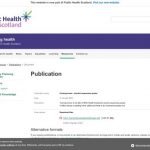
Public Health Scotland - Alcohol Coming Home Awareness Poster
‘Coming home’ is the title of NHS Health Scotland’s alcohol awareness poster. It offers advise on getting home safely and what to do if someone passes out.
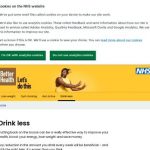
NHS Better Health - Drink Less
Better Health is an NHS Website that helps patients with aspects of their lifestyle. Healthy changes start with little changes. Whether you want to lose weight, get active or quit smoking, Better Health is here with lots of free tools and support. You can also find simple ways to lift your mood with Every Mind Matters.
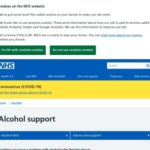
NHS Alcohol Campaign Resources
Contains facts about alcohol as well as advice and support. Some very useful contacts for alcohol problems as well as links to information about treatments for alcohol dependency.
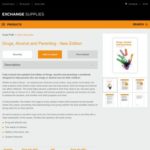
Drugs, alcohol and parenting booklet
Paid for booklet. Fully revised and updated 2nd edition of Drugs, alcohol and parenting: a workbook designed to help parents who use drugs or alcohol care for their children. Written by Mary Glover – an experienced childcare social worker, drug worker and trainer, the book explains what children need, what social care services expect, and how drugs and alcohol can affect childcare. The book helps parents understand what they need to do, and also gives practical tips on how to do it. With unique self-scoring questions, parents and workers are able to assess the situation, and monitor and chart progress over time. A child protection ‘the bottom line’ page in every section means that everyone knows exactly where they stand, preventing misunderstandings and giving children the best possible chance of being cared for by their parents. As well as being an excellent case work tool, the book provides workers new to the field with a clear explanation of the issues. Divided into sections, the book covers:
- Drug and alcohol use;
- The needs of children;
- Safety in the home; and
- Support networks.

DrinkAware resources for a wide range of uses
The Drinkaware Trust is an independent UK-wide alcohol education charity, funded largely by voluntary and unrestricted donations from UK alcohol producers, retailers and supermarkets. The Trust is governed independently and works in partnership with others to help reduce alcohol-related harm by helping people make better choices about their drinking.
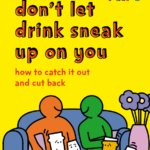
Change 4 life - Don't let alcohol sneak up on you leaflet
A useful leaflet on how to spot alcohol issues and try to manage them.
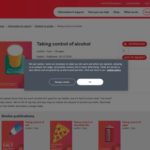
British Heart Foundation - Taking control of alcohol
Most people know that too much alcohol isn’t good for our health, but it’s hard to know what “too much” really means. A leaflet full of top tips and easy ways to reduce the amount of alcohol you drink.
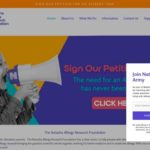
Natasha’s foundation
Natasha’s Foundation’s vision is to prevent and end allergic disease; it is also our mission to bring about positive change by focusing on law and policies, medical research and educating and raising allergy awareness. We want to ensure the needs of allergy sufferers are met in a meaningful way and to offer a real hope that will change the lives of all those living with this life threatening disease.
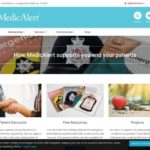
Medical alert leaflet
The MedicAlert Foundation first launched in Turlock, California, in 1956, before coming to the UK over 55 years ago. As the pioneers of medical IDs, we remain the only charity provider of life-saving medical ID services worldwide. MedicAlert UK is based in Buckinghamshire, with a production unit creating bespoke medical ID jewellery and a member services team including in-house Registered Nurses to support our 42,000 members.

Improving allergy through education, training and research
The BSACI’s core aim is to improve allergy care and to do this provides allergy resources to its members, including clinical guidelines and organising educational meetings. Our executive council is formed of Four Trustee Directors also known as officers of the society. We also have seven elected council members, as well as groups and committees representatives. BSACI consists of the following committees; Standards of Care: Responsible for all aspects of good allergy practice; Annual Meeting Committee: Responsible for the annual scientific meeting; Allergy Services: Responsible for issues relating to the delivery of NHS allergy services and workforce; Paediatrics Committee: Responsible for issues concerning paediatric allergy services and research; Adult Allergy: Responsible for issues concerning adult allergy services, education and research; Primary Care: Responsible for developing primary care allergy services Clinical Immunology Committee: Responsible for building links with BSI and undertaking joint working with BSACI to the benefit of patients. Nurses Committee: Representing the interests of nurses working in allergy/clinical Immunology. For more information on the groups visit the BSACI Subcommittees and groups page The BSACI works collaboratively with other external stakeholders in order to fulfil our aims some of these are: the World Allergy Organisation (WAO), European Academy of Allergy and Clinical Immunology (EAACI) and with patient charities Allergy UK and Anaphylaxis Campaign. Together we have been instrumental in lobbying for better provision of allergy care in an alliance called the National Allergy Strategy Group, along with patient charities and supported by industry. Many of our members have given evidence at Government enquiries into allergy care and represent the society on NICE guidelines. BSACI is open to working alongside other groups and professional organisations who share the same values and have similar aims.
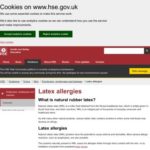
HSE - Latex allergy resources
Health and Safety Executive resources on latex allergies. HSE helps workers understand how they can stay safe and well. With roots stretching back to 1833 the modern HSE is an independent regulator with over forty years’ experience helping Great Britain work well. Using world leading science we have helped protect millions of people from devastating injury and suffering. HSE leads the way, but doesn’t act alone. Everyone has a part to play – employers, unions, trade associations, professional bodies, academics and others.
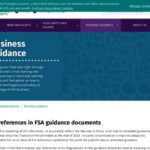
FSA - Publications about food allergies
Business guidance from the Food Standards Agency
Keeping your food safe right through the food chain. From farming and manufacturing to retail and catering, in this website you will find advice on how to manage food hygiene and safety at every stage of the business.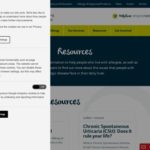
Childhood allergy resources
Allergy UK provide a range of information to help people who live with allergies, as well as for organisations who want to find out more about the issues that people with allergic disease face in their daily lives.
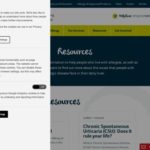
Allergy UK - Various allergy resources
In this website you can find information and resources on what causes an allergic reaction, common signs and symptoms in both adults and children and the differences between allergy, intolerance and anaphylaxis. We estimate that allergies affect the lives of up to 21 million people in the million people in the UK and allergic disease has been described as a ‘modern epidemic’ by the World Health Organisation. Between 5 and 8 per cent of children in the UK live with a food allergy. What causes allergy is yet to be determined but research continues into what lies behind the increase in this disease across the modern world. Allergies are most common in children, but they can occur at any age, and they can run in families – if you have an allergy it is likely that one of your parents had allergy too. There are many kinds of allergies, from food, which is probably the most widely recognised, to skin, respiratory, eyes, drugs and venom and allergy. While in most people, allergy reactions will be mild to moderate they can be fatal in a condition called anaphylaxis, the most severe allergic reaction which requires an immediate emergency response.

Alzheimers Factsheets
Alzheimer’s society is the UK’s leading dementia charity. They campaign for change, fund research to find a cure and support people living with dementia today.
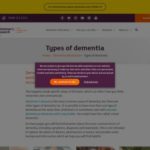
Alzheimers Facts Booklet

Alzheimer's leaflets
Alzheimer’s society We’re here, so how can we help?
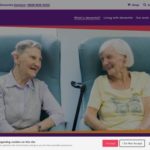
Alzheimer Scotland
Alzheimer Scotland is Scotland’s national dementia charity. Their aim is to make sure nobody faces dementia alone. They provide support and information to people with dementia, their carers and families, they campaign for the rights of people with dementia and fund vital dementia research. They have Dementia Resource Centres in 21 different locations across Scotland. Those centres provide a safe and friendly environment for people with dementia and their carers to visit and take part in a wide variety of activity groups. There is also a 24 hour Freephone Dementia Helpline which provides information and emotional support to people with dementia, carers, families, friends and professionals. There is a network of Dementia Advisors employed by Alzheimer Scotland who work in local communities to support people with a diagnosis by giving advice and information. They have over 9,000 members, over 90,000 Dementia Friends and are supported by over 1,000 volunteers. They employ around 550 full and part-time staff, mainly in their service-provision projects across Scotland.
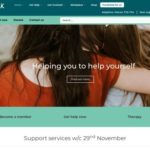
Fear of flying resources from Anxiety UK
This fact sheet gives a detailed overview, as well as a look at some of the evidence based approaches to treating fear of flying.

AnxietyUK.org.uk/
Anxiety UK was formed in 1970, by Katharine and Harold Fisher as a result of Katharine’s experience of agoraphobia and her desire to develop support for others similarly affected. Since those early beginnings, they’ve grown to become a national organisation with an international reach, whilst retaining a user-led ethos – being run by and for those with anxiety. Many of their small seven strong staff team have their own lived experience and understand the distress, isolation and misery that anxiety can cause. They’re here to help and can support you to find ways to control anxiety instead of it controlling you.
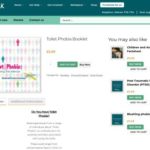
AnxietyUK - Toilet Phobia resources
Read experiences from a range of individuals about “Toilet Phobia”, an umbrella term for anxieties and fears associated with using the toilet. These could range from contamination fears in OCD, to shy bladder syndrome. Contained alongside the personal experiences of a number of individuals with toilet phobia are the professional perspectives of a range of leading practitioners, who offer an explanation for these problems, and evidence on potential solutions.

Speak with IT
Speak With IT match people with aphasia with a trained volunteer who will support the person to work on their goals using a variety of of computer therapy programs available on Windows, iPad and Android devices, alongside supported conversation techniques. All our volunteers are trained by speech therapists on the various computer therapy programs we support as well as supported conversation techniques. Speak With IT lends equipment and software to people so that they can test and determine which program best suits their needs. Our volunteers visit clients in their homes to support them as they try the various therapies, giving family members and carers a little respite.
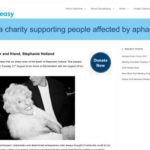
Speak Easy
Speakeasy is a specialist aphasia charity based in Ramsbottom, Bury. A range of professionals and volunteers, many who themselves have aphasia, are involved in delivering support and therapy to people with aphasia and their families. All staff work part time: creatively and flexibly and tirelessly.
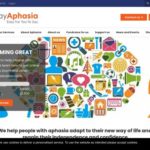
Say Aphasia
From experiencing it ourselves, we understand how much of an impact aphasia has on people’s lives. We understand the struggles to adapt to this new way of life after a stroke or brain injury. And we know how isolating it can be. Especially when you cannot communicate in the same way you did before. One of the things that makes this time so isolating is the fact that others do not understand what is happening to you. When family and friends struggle to communicate with you, or struggle to see you as the same person as before, we want to step in and help them to understand your condition.
Dyscover
Dyscover is a charity providing long-term support and opportunities to people with aphasia and their families. Daily sessions are led by professional speech and language therapists and are designed to help people to adjust to living with aphasia. We help our members to develop strategies for communicating, maximise abilities and provide help and support for partners, carers and other family members.

Patient.co.uk - Arrhythmia patient leaflet
A useful leaflet that describes what arrhythmias are, what the symptoms consist of, how they are treated and the tests that are used to diagnose them.

Arrhythmia Alliance resources
Arrhythmia Alliance (A-A): working together to improve the diagnosis, treatment and quality of life for all those affected by arrhythmias. A-A is a coalition of charities, patient groups, patients, carers, medical groups and allied professionals. Although these groups remain independent, they work together under the A-A umbrella to promote timely and effective diagnosis and treatment of arrhythmias. Core Aims
- To raise awareness of cardiac arrhythmias
- To improve diagnosis of cardiac arrhythmias
- To improve treatment of cardiac arrhythmias
- To improve quality of life for people with cardiac arrhythmias
- To bring together member charities, healthcare professionals, commissioners and their allies
- To advance the concerns and needs of all our members
- To develop the knowledge and skills base of medical professionals and professions allied to medicine
- To cultivate multi-centre and multi-disciplinary research
- To prevent sudden cardiac death in vulnerable groups
- To promote the value and need for cardiac pacing, implantable defibrillators, catheter ablation and other treatments for arrhythmias
- To prevent misdiagnosis in patients suffering from arrhythmias and transient loss of consciousness (T-LoC)
- To assess and quantify unmet need amongst those affected by arrhythmias
- To promote centres of excellence for arrhythmia diagnosis and treatment
- To secure better care, leading to a better quality of life, for individuals with arrhythmia

Arrhythmia Alliance - Useful Arrhythmia links
A wide collection of very useful links for patients suffering from Arrhythmia
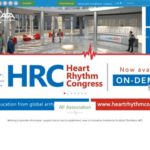
AF association - various publications
Atrial Fibrillation Association is a UK registered charity which focuses on raising awareness of atrial fibrillation (AF) by providing information and support materials for patients and medical professionals involved in detecting, diagnosing and managing atrial fibrillation. AF Association works closely with medical professionals, Department of Health, government, NHS Trusts, strategic health authorities, patients, carers, patient support group members and allied groups. All information resources published by AF Association have been approved by an AF medical panel and endorsed by the Department of Health. The booklets currently available include titles on: Cardioversion of AF, Drug Treatments for AF, Blood Thinning for AF, two Checklists and an AF Patient Information booklet. AF Association is fortunate to have Professor A John Camm, Prof Martin Cowie and Mrs Jayne Mudd as Trustees and Baroness Smith of Gilmorehill as Patron. Mrs Trudie Lobban MBE is the Chief Executive Officer. Quite simply, “AF is the most common cardiac rhythm problem and causes considerable misery for many people. The AF Association will help patients to understand and get access to established and new or innovative treatments for AF” Prof Richard Schilling – Consultant Cardiologist and Trustee, AFA

World Arthritis Day Materials
World Arthritis Day, referred to as WAD, is a global awareness day held every year on 12 October. WAD aims to help raise awareness in all audiences across the world of the existence and impact of rheumatic and musculoskeletal diseases, often referred to as RMDs. The debilitating effects of these diseases, of which more than 200 exist, are little known; their impact, however, is largely – and silently – felt.

Versus Arthritis - various resources to download or order
- Conditions
- Drugs
- Surgery
- Therapies
- Living with arthrisis
- Additional items
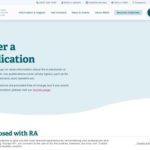
National Rheumatoid Arthritis Society - Various Rheumatoid Arthritis Materials
The National Rheumatoid Arthritis Society (NRAS), is the only patient-led organisation in the UK specialising in rheumatoid arthritis (RA) and juvenile idiopathic arthritis (JIA). Due to its targeted focus on RA and JIA, NRAS provides truly expert and wide-ranging services to support, educate and campaign for people living with these complex autoimmune conditions, their families and the health professionals who treat them. Their vision is to support all with RA or JIA to live life to the full with an underpinning mission to:
- support everyone living with the impact of RA or JIA at the start and every step of their journey
- to inform – be their first choice for reliable information, and
- empower all to have a voice and take control of their RA or JIA
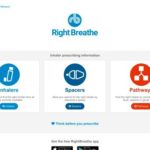
Rightbreath resources
RightBreathe was created by NHS pharmacists and doctors for NHS patients. It is now funded and maintained by the NHS London Procurement Partnership with the oversight of a multi-professional steering board. Make and Ship, the development partners who built RightBreathe continue to provide technical support for RightBreathe. There are over 120 inhaler device & drug combinations licensed for the treatment of respiratory disease in the UK and it can be challenging for clinicians and patients to identify the product which best meets individual needs. RightBreathe is a web-based resource which provides detailed information on all UK-licensed inhaler products. It is designed to support joint decision-making about product choice and to facilitate appropriate prescribing. Choosing & matching the device to the needs and abilities of individual patients is critical to successful treatment as is teaching patients how to use it properly. There is firm evidence that patients who don’t user their inhaler correctly don’t achieve the maximum possible benefit from their treatment. The technique needed varies between different types of device and may vary between devices of the same type. RightBreathe provides links to a comprehensive range of videos which teach optimal inhaler technique for every device, to help patients achieve the best possible outcomes from their treatment.

Asthma UK publications
Every 10 seconds someone in the UK has a potentially fatal asthma attack. Every single day the lives of three families are devastated by the death of a loved one from asthma. Tragically, the majority of these deaths could be prevented right now with the right basic care. However, others still suffer with asthma so severe that current treatments don’t work. This has to change. That’s why Asthma UK exists. Asthma UK work to stop asthma attacks and, ultimately, cure asthma by funding world leading research and scientists, campaigning for change and supporting people with asthma to reduce their risk of a potentially life threatening asthma attack.
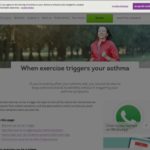
Asthma UK - Exercise and Asthma
Every 10 seconds someone in the UK has a potentially fatal asthma attack. Every single day the lives of three families are devastated by the death of a loved one from asthma. Tragically, the majority of these deaths could be prevented right now with the right basic care. However, others still suffer with asthma so severe that current treatments don’t work. This has to change. That’s why Asthma UK exists. Asthma UK work to stop asthma attacks and, ultimately, cure asthma by funding world leading research and scientists, campaigning for change and supporting people with asthma to reduce their risk of a potentially life threatening asthma attack.
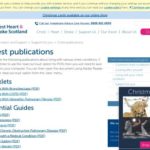
Asthma Publications from Chest, Heart & Stroke Scotland (CHSS)
Chest, Heart & Stroke Scotland (CHSS) are Scotland’s health charity supporting people and their families across Scotland with chest, heart and stroke conditions. They want to make sure life living with a chest or heart condition or after a stroke is a life lived to the full.
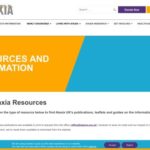
Ataxia.org.uk - Ataxia resources
Ataxia UK are the leading national charity in the UK for people affected by any type of ataxia. They fund research into finding treatments and cures, and offer advice, information and support to people affected by the condition.
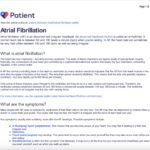
Patient.co.uk - AF patient leaflet
Guides patients through what AF is, the symptoms, the causes, tests and treatment options.
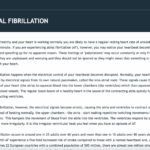
Anticoagulation Europe
AntiCoagulation Europe (ACE) is a registered charity committed to the prevention of thrombosis and the provision of information and support for people already receiving anticoagulant and anti-platelet therapy. As well as our comprehensive website, a quarterly magazine, leaflets and factsheets are available.
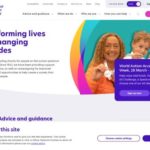
National Autistic Society
We are the UK’s leading charity for people on the autism spectrum and their families. Since 1962, we have been providing support, guidance and advice, as well as campaigning for improved rights, services and opportunities to help create a society that works for autistic people.

Ambitious About Autism
We stand with autistic children and young people, champion their rights and create opportunities. We run specialist education services, an award-winning employment programme and children and young people are at the heart of our charity’s decision-making, policy work and campaigning. We also use our expertise to deliver training and consultancy to a wide range of organisations to improve awareness and understanding of autism.
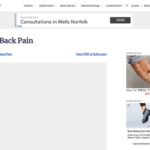
Patient.co.uk - Non-specific Lower Back Pain in Adults
Guides patients through the different types of lower back pain and their causes.
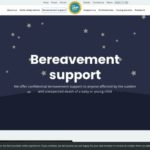
The Lullaby Trust - Bereavement support resources
The Lullaby Trust provides emotional support for bereaved families, promotes expert advice on safer baby sleep and raises awareness of sudden infant death. Working with the NHS, they run a national health-visitor led service for bereaved parents, Care of Next Infant (CONI) programme, which supports families before and after the birth of their new baby. They are committed to supporting research to understand why so many babies a year die suddenly and unexpectedly in the UK and to find out more about how to prevent these tragic deaths. The Lullaby Trust operates nationwide across England, Wales and Northern Ireland. They run an information line for parents and professionals (0808 802 6869) and a dedicated line for bereaved families (0808 802 6868). Both are free to call from landlines and mobiles.

The Compassionate Friends - Bereavement Leaflets
The Compassionate Friends is a registered charity providing services commensurate with its charitable objectives, which are primarily:
- To advance and assist in mental and physical welfare following suffering and infirmity among (a) parents occasioned by the death of their child(ren) and (b) other close relatives of such child(ren), normally brothers, sisters and grandparents.
- To promote and support research into and to publish the results of the search into medicine and road safety and other child life protection projects likely or intended effectively to reduce deaths among children.
- Seek further improvement in the quality of support and care offered to bereaved parents and families after the death of a child
- Increase knowledge within TCF of issues relating to child death
- Raise public awareness regarding TCF and issues relating to child death
- Develop funding opportunities and increase the support base of the charity
- Provide our volunteers and staff with high-quality training
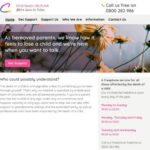
Child Death Helpline Resources
The Child Death Helpline was established in 1989 at the Alder Centre, Alder Hey Children’s NHS Foundation Trust. A similar helpline, the Child Death Helpline was established at Great Ormond Street Hospital for Children NHS Trust in 1992.
In 1995 the experience and tradition of both centres were brought together to form the national freephone Child Death Helpline dedicated to provide a quality Freephone service to anyone affected by the death of a child of any age – whether they are parents, grandparents, siblings, family members, friends or involved professionals. The Child Death Helpline is staffed by volunteers, all of them bereaved parents. All of our volunteers are trained, supervised and supported by professional teams within Great Ormond Street Hospital for Children NHS Trust and the Alder Hey Children’s NHS Foundation Trust. The helpline is a partnership between professionals and parents working together to provide a professional service to anyone affected by the death of a child of any age. The Child Death Helpline aims to provide a quality freephone service to anyone affected by the death of a child of any age. Callers to the helpline might be parents, grandparents, siblings, other family members, friends or involved professionals. They offer a confidential, safe environment within which a caller can talk openly about the child’s life and death. Callers are given the opportunity to freely express their worries and emotions. We provide support not only at times of crisis but also for ongoing needs of callers over their lifetime.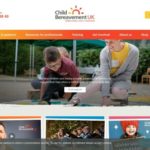
Child Bereavment UK Leaflets
Child Bereavement UK helps children, parents and families to rebuild their lives when a child grieves or when a child dies. We support children and young people up to the age of 25 who are facing bereavement, and anyone impacted by the death of a child of any age. Child Bereavement UK provides training to professionals in health and social care, education, the voluntary and corporate sectors, equipping them to provide the best possible care to bereaved families. Vision & Mission Their vision is for all families to have the support they need to rebuild their lives, when a child grieves or when a child dies. Their mission is to ensure the accessibility of high-quality child bereavement support and information to all families and professionals by increasing our reach and plugging the gaps that exist in bereavement support and training across the country.
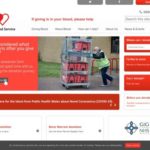
Welsh Blood Service - Blood donation
The Welsh Blood Service [WBS] covers the whole of Wales. They collect voluntary, non-remunerated blood donations from the general public. These donations are processed and tested before distribution to hospitals where they support patient care. They also hold blood-derived products (both NHS and Commercial) for purchase by their customer hospitals. They provide an antenatal screening service to several hospitals and offer all customer hospitals specialist laboratory services to assist in the investigation of complex serological problems. The Welsh Transplantation & Immunogenetics Laboratory, within the WBS, provides direct support to local providers of Renal and Stem Cell Transplant Services. It also operates a national panel of unrelated potential blood stem cell donors – the Welsh Bone Marrow Donor Registry.

Scot Blood - Blood donation leaflets
Wide range of publications and resources from Scottish National Blood Transfusion Service (SNBTS)
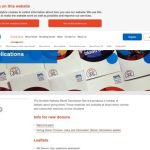
NHS Scotland - List of blood donation leaflets/booklets
The Scottish National Blood Transfusion Service (SNBTS) is the specialist provider of safe high quality blood, tissues and cells products and services in Scotland. Our key priority is to ensure that NHSScotland has enough blood to meet the transfusion needs of patients in Scotland. They make sure that blood, tissues and cells are available when patients need them. Find out more about how they work, their clinical services and their work in the development of tissues and cells.
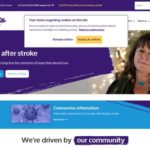
Stroke UK - Blood pressure and stroke risk
This guide explains what high blood pressure is, the types of medication used to treat it and what you can do to lower your blood pressure.
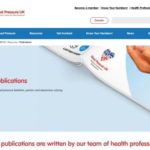
Blood pressure UK resources
Browse Blood Pressure UK’s blood pressure booklets, posters and awareness-raising materials.
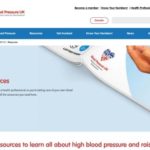
Blood Pressure UK - Various resources
Whether you’re a health professional or you’re taking care of your own blood pressure, find all the resources you need here.
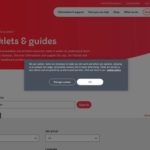
BHF - Various resources
The British Heart Foundations range of downloadable and printed resources make it easier to understand heart and circulatory diseases. Discover information and support for you, for friends and family, and for healthcare professionals.
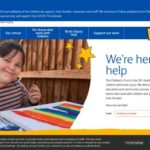
The Childrens Trust
The Children’s Trust is the UK’s leading charity for children with brain injury. We deliver rehabilitation, education and community services through skilled teams who work with children and young people, and their families.
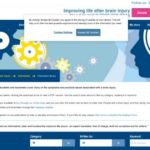
Headway's Resource shop
Headway is the UK-wide charity that works to improve life after brain injury by providing vital support and information services, including:
- a freephone helpline (0808 800 2244, [email protected]);
- a comprehensive award-winning website containing information and factsheets on all aspects of brain injury (www.headway.org.uk);
- an award-winning range of booklets and publications designed to help people understand and cope with the effects of brain injury;
- an emergency fund to assist people dealing with the financial implications in the immediate aftermath of a brain injury;
- a Brain Injury Identity Card to help in everyday situations and if you come into contact with the criminal justice system;
- Headway Acute Trauma Support (HATS) nurses to support families whose loved ones are in the acute stage of care following brain injury;
- a directory of approved residential homes, rehabilitation units and respite facilities specialising in ABI.
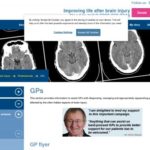
Headway - Brain Injury resouces for GPs
This information provides information to assist GPs with diagnosing, managing and appropriately signposting patients and carers affected by the often hidden aspects of brain injury. There is a flyer to help GPs access this information. Is contains details of our GP pledge and this website to ensure our brain injury management and referral guides are within easy reach. Download the flyer in the related resources section.
Brain injury management and referral factsheets
Our resources are based on our two management and referral factsheets which cover minor brain injury and concussion, as well as well as other types of moderate to severe acquired brain injuryMild brain injury: A guide for GPs
This factsheet helps GPs to diagnose, refer and manage patients who have sustained a minor brain injury. As well as the detailed factsheet, it contains a number of useful tools for assessing patients who may have symptoms of concussion.Management of acquired brain injury: A guide for GPs
This factsheet provides detailed information for GPs who are managing patients with an acquired brain injury, or who may need further specialist assessment. The information given is designed to help GPs diagnose, support and refer these patients. You can download these and further information in the related resources section.Supporting carers
Approximately 12% of general practice patients are carers. It is extremely important that GPs are aware of the issues these patients have to cope with and provide appropriate support. Find out more on the supporting carers information page.
Headway - Brain Injury resouces
Headway’s range of e-booklets and factsheets cover many of the symptoms and practical issues associated with a brain injury. You can browse the library using this link, clicking the download arrow to view a PDF version. Use the search tools above to filter by category, audience or keyword. Many of the e-booklets are available to buy through the online shop, and you can click the button next to them to order now. People with a brain injury and their family members can order free printed copies of our booklets and factsheets through the Headway helpline.
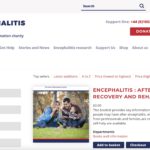
Encephalitis Society
Wide ranging information and support about encephalitis.
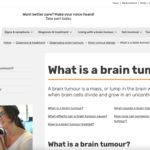
The Brain Tumour Charity - Brain tumour information
The Brain Tumour Charity is the world’s leading brain tumour charity and the largest dedicated funder of research into brain tumours globally.
Committed to saving and improving lives, they’re moving further, faster to help every single person affected by a brain tumour. They’re set on finding new treatments, offering the highest level of support and driving urgent change.
Brain Tumour Charity information for parents, public and health care professionals
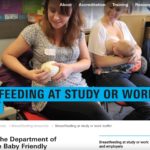
UNICEF - Breast feeding at study or work
Published by the Department of Health and the Baby Friendly Initiative, this leaflet provides mothers with information about continuing to breastfeed when going back to work or study. Going back to study or work may be the first time you have been separated from your baby for long periods. Continuing to breastfeed helps to keep the close relationship you’ve built up, providing your baby with extra comfort and security for as long as you both want. You don’t need to stop breastfeeding just because you’re returning to study or work. Many women find ways to continue breastfeeding their baby – and employers have certain obligations towards breastfeeding women. The last section in this leaflet sets out how employers can make it easier for you to do so – show this leaflet to your employer. For free printed copies please contact the Department of Health orderline. Please note that printed copies are not available from Unicef UK. Visit ACAS to find out more about pregnancy and maternity rights, as well as breastfeeding at work.
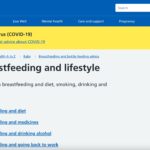
NHS Website - Breastfeeding and lifestyle
Advice on breastfeeding and diet, smoking, drinking and work.
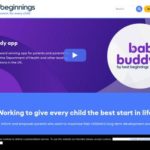
Best Beginnings - Get Britain Breast Feeding Support Materials
Best Beginnings focus on the ‘window of opportunity’ from preconception to a child’s fifth birthday, where the foundations for a healthy and happy life are laid. They forge partnerships and collaborate with mothers, fathers, co-parents and other care-givers, local communities, grass-roots and professional organisations, volunteers, front-line professionals, service providers, academics and policymakers to inform and empower parents and other care-givers of all backgrounds to build the knowledge and confidence they need to look after themselves and to provide nurturing care for their children. They use a data-driven approach and the latest research and evidence about pregnancy and early years development to inform their work, so parents and health professionals can trust that the support that they offer will lead to better outcomes. They provide mothers, fathers, co-parents and other care-givers easy access to additional support, including the 24/7 Baby Buddy Crisis Messenger service, as no one should have to face a crisis alone.

Scotland NHS - Anti-bullying campaign
respectme, Scotland’s anti-bullying service, was launched in March 2007. The service is fully funded by the Scottish Government and is managed by SAMH (Scottish Association for Mental Health) in partnership with LGBT Youth Scotland. Their vision is of a respecting, just, equal and inclusive Scotland in which all children and young people can live free from bullying and harassment and are encouraged to reach their full potential. They work with all adults involved in the lives of children and young people to give them the practical skills and confidence to deal with children who are bullied and those who bully others. They aim to build the capacity of these adults to effect change and challenge bullying and stigma at an individual, school, family, community and societal level. They also campaign at a national level to raise awareness of the service and the impact that bullying can have.
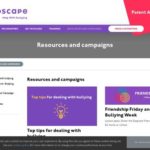
Kidscape - Bullying Materials
Kidscape’s vision is for all children to grow up in supportive communities safe from bullying and harm. Their mission is to provide practical support, training, and advice to challenge bullying and protect young lives.
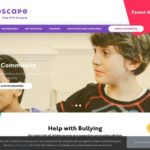
Kidscape
Our vision is for all children to grow up in supportive communities safe from bullying and harm. We provide practical support, training, and advice to challenge bullying and protect young lives.
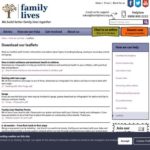
Family Lives resources
Family Lives was formed over forty years ago by volunteers, with the aim of ensuring that all parents had somewhere to turn before they reached crisis point. We know that the right support at the right time makes all the difference. Family Lives provides targeted early intervention and crisis support to families who are struggling. The issues we support families with include family breakdown, challenging relationships and behaviour, debt, and emotional and mental wellbeing. We know the difference being able to access appropriate, timely support can make to families in crisis, knowing there is someone at the end of the phone who will listen to them. And we know the longer term impact of early intervention with families, such as through the ParentChild+programme, which supports the home-learning environment, and our family befriending programmes. The expertise of our staff and volunteers is at the heart of everything we do, and we work together with them to support families through our range of services. We have always been a volunteer-led organisation and we simply could not do it without our 300+ volunteers, who work alongside our dedicated staff team. Many of our volunteers began their relationship with us as service users but have stayed to support others on their journey – a testament to the support they themselves received. Our crisis support, provided for over 40 years through our helpline, has always been at the heart of what we do. Over the last year, demand has continued to outstrip our ability to help as many families as we want to. We have built up long-standing programmes in the areas we work in across England, providing support to thousands of families through our befriending services.
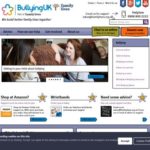
Bullying UK
Family Lives was formed over forty years ago by volunteers, with the aim of ensuring that all parents had somewhere to turn before they reached crisis point. We know that the right support at the right time makes all the difference. Family Lives provides targeted early intervention and crisis support to families who are struggling. The issues we support families with include family breakdown, challenging relationships and behaviour, debt, and emotional and mental wellbeing.

Bullies Out
Established in May 2006, they are one of the UK’s most dedicated and ambitious anti-bullying charities. Their award winning work is delivered across the UK and each year, through their work with individuals, schools, youth and community settings and the workplace, they provide education, training and support to thousands of people. Through their innovative, interactive workshops and training programmes, they use their experience, energy and passion to focus on awareness, prevention, building empathy and positive peer relationships all of which are crucial in creating a nurturing environment in which young people and adults can thrive.
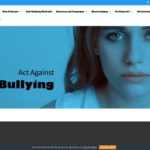
Act Against Bullying
Act Against Bullying began in 2000. Writer and parent Louise Burfitt-Dons set it up concerned about the escalation of bullying in the UK. She is still the spokesperson for the charity.
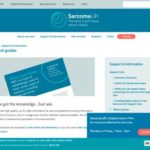
Sarcoma UK - Various bone cancer leaflets
Sarcoma UK provide high quality, up-to-date information for sarcoma patients including information on this form of cancer, how it is diagnosed and the treatment options available. All information is reviewed by specialists in the sarcoma field.
Patient.co.uk - Patient information leaflet on bone cancer
Patient.co.uk information about bone cancer.
Patient.co.uk - Myeloma
Patient.co.uk information about Myeloma.
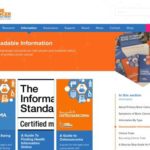
Patient leaflet on bone cancer - Bone cancer research trust
The Bone Cancer Research Trust are the leading charity dedicated to fighting primary bone cancer and are uniquely placed to make a difference through research, information, awareness and support.
For those affected by the disease right now, their top-quality information and supportive network means no-one should have to feel alone or isolated.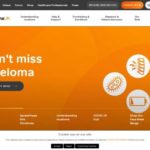
Myeloma UK - Professionals resources
Myeloma UK is the only organisation in the UK dealing exclusively with myeloma. Their ultimate goal is to find a cure. They are dedicated to myeloma patients – making sure they get access to the right treatment at the right time. They continually strive to improve standards of treatment and care through research, education and raising awareness of myeloma. They receive no core Government funding and rely almost entirely on voluntary donations and fundraising.
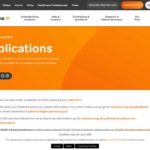
Myeloma UK - Myeloma Infoguides
Myeloma UK is the only organisation in the UK dealing exclusively with myeloma. Their ultimate goal is to find a cure. They are dedicated to myeloma patients – making sure they get access to the right treatment at the right time. They continually strive to improve standards of treatment and care through research, education and raising awareness of myeloma. They receive no core Government funding and rely almost entirely on voluntary donations and fundraising.
Bone Cancer Research Trust
The Bone Cancer Research Trust are the leading charity dedicated to fighting primary bone cancer and are uniquely placed to make a difference through research, information, awareness and support.
For those affected by the disease right now, their top-quality information and supportive network means no-one should have to feel alone or isolated.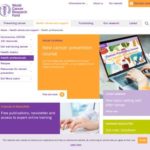
WCRF - Reducing Your Risk of Bowel Cancer leaflet
Beating Bowel Cancer Campaign Materials
Bowel Cancer UK are determined to save lives and improve the quality of life for all those affected by bowel cancer.
Working together with people affected by bowel cancer and the clinical and research community, they campaign for early diagnosis and access to best treatment and care across the UK.
Use this link to find out about the latest issues they’re campaigning on and how they’re leading the change for all those affected by bowel cancer.
See our Cervical Screening resource page for details

Your cervical screening (smear test) invitation
We have worked with Enable Scotland and their community to create a series of short films for women with a learning disability living in Scotland. Find out about receiving your cervical screening letter in the post.
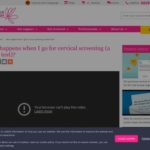
What happens when I go for cervical screening (a smear test)?
We have worked with Enable Scotland and their community to create a series of short films for women with a learning disability living in Scotland. This film is about attending your cervical screening appointment during the pandemic.

Support for your cervical screening (smear test)
We have a leaflet that tells you all about what support is available before, during and after your cervical screening (smear test). This video explains how you can use the leaflet.
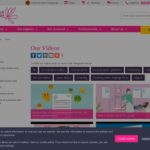
Screening (Other language films)
Select the “Screening (other language films)” tab.
Please see the separate Children’s health link for extensive Children’s health resources
See our COVID hub page for details
Live fear free Wales - Resources
Providing help and advice about violence against women, domestic abuse and sexual violence

